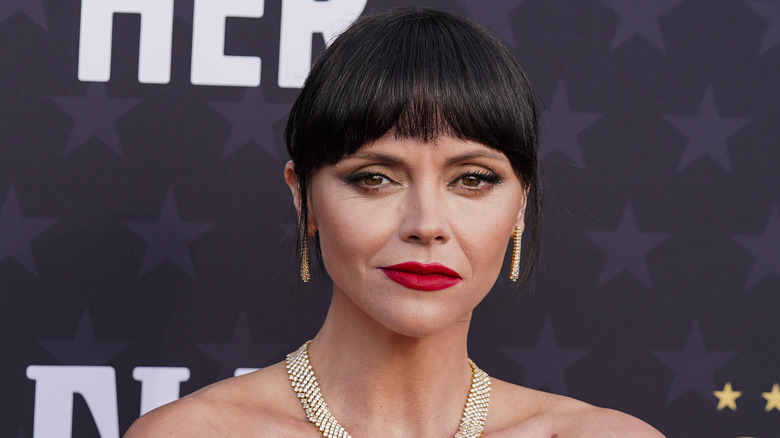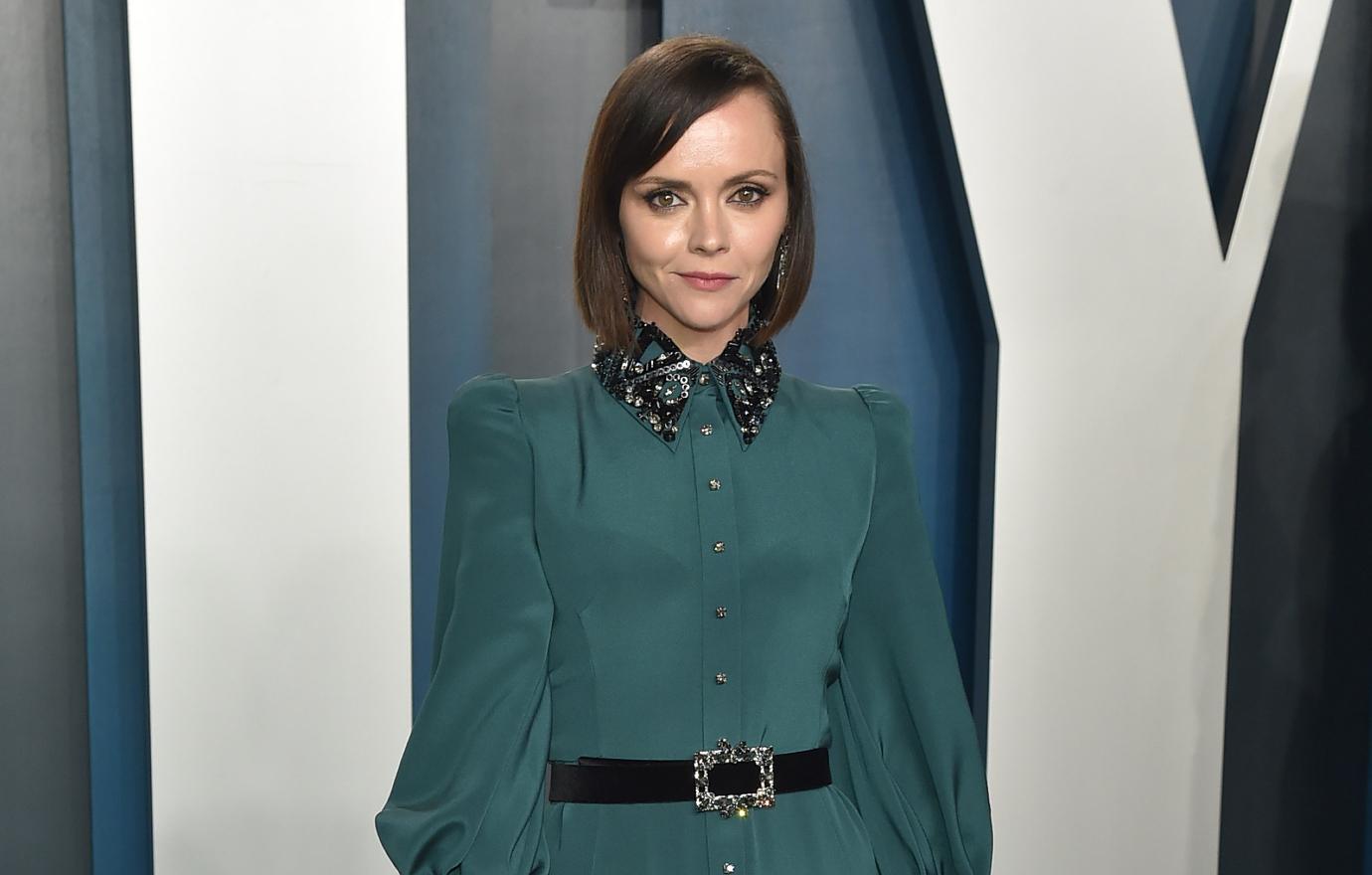In 2003, writer-director Woody Allen introduced the world to Anything Else, a romantic comedy that premiered as the opening night feature at the Venice International Film Festival. While its early reception was mixed, the film has gradually developed a following, with some cinephiles and casual viewers alike rediscovering it over the years. Central to this movie’s enduring appeal is the performance of Christina Ricci, who portrays Amanda, a high-maintenance but complex character whose relationship with Jerry (Jason Biggs) drives much of the film’s plot. Below is a deep dive into Anything Else, from its origin and style to its cast performances and the legacy it has carved out since its release.
Woody Allen’s Return to Youthful Romance
By the time Anything Else premiered in 2003, Woody Allen had amassed decades of filmmaking experience, renowned for such classics as Annie Hall, Manhattan, and Hannah and Her Sisters. In many of his previous works, Allen typically focused on characters closer to his own age, often dissecting neuroses and romantic entanglements among New York intellectuals. However, Anything Else introduced a younger pairing, centering on Jerry Falk (played by Jason Biggs), an aspiring writer, and Amanda Chase (Christina Ricci), an aspiring performer. Allen himself takes on the role of David Dobel, an older mentor to Jerry, dispensing comedic life lessons and cautionary tales.
Despite having a long track record of weaving witty dialogue into comedic narratives, Allen takes a slightly different path here. Anything Else is marked by youth-centric humor, focusing on Jerry’s inexperience and susceptibility to emotional pitfalls. The contrast between Jerry’s and Amanda’s twenty-something angst and David Dobel’s guarded cynicism shapes much of the movie’s comedic tension. In this dynamic, viewers can catch glimpses of Allen’s signature humor, but filtered through a fresher—and often chaotic—lens.

The Venice Film Festival Debut
One of the most noteworthy aspects of Anything Else is its selection as the opening night feature at the Venice International Film Festival in 2003. For a romantic comedy to hold such a prestigious slot signaled the film’s potential to resonate with a global audience. Venice, known for showcasing a mix of established auteurs and daring new voices, offered Allen a moment in the international spotlight. Critics and festival attendees arrived with high expectations, anticipating the trademark blend of comedy and introspection that had become Woody Allen’s hallmark.
Opinions on Anything Else at Venice were mixed. Some critics appreciated the film’s return to Allen’s comedic roots—focusing on romance, neuroticism, and witty banter—while others felt it lacked the originality of his earlier classics. Regardless of the initial critical split, the festival launch gave Anything Else significant publicity. Today, many film buffs look back on that Venice premiere as a reminder of Allen’s storied career, and it remains an integral part of the movie’s history.

Jerry Falk’s Tumultuous World
The protagonist of Anything Else, Jerry Falk, is a budding writer battling classic New York City challenges: an unpredictable girlfriend, a chaotic professional life, and his own self-doubts. Jason Biggs, who came to prominence with comedic roles in the American Pie franchise, steps into Allen’s world of conversational humor and psychological introspection. While Jerry attempts to pen jokes and skits for his career, he is simultaneously juggling a faltering relationship with Amanda, who is perpetually dissatisfied yet fascinating in her own right.
Biggs’s character exudes the quintessential Allen-esque dilemma: navigating cynicism and optimism in a city brimming with possibilities. Through quick-witted exchanges and comedic set pieces, Jerry evolves from wide-eyed amateur to someone better equipped (though still imperfect) to handle romantic and artistic pressures. The weight of the storyline hinges on whether Jerry will stay entangled in a love that offers equal measures of thrill and exasperation.
Christina Ricci as Amanda Chase
If Jerry is the film’s anchor, Amanda is its catalyst. Christina Ricci delivers an energetic performance as Amanda Chase, the high-maintenance girlfriend who oscillates between charm and exasperation. Early in the film, Amanda’s relationship with Jerry appears promising—both are artists seeking validation. Yet, cracks quickly surface. Amanda’s mercurial shifts in mood, along with an inclination to push Jerry’s boundaries, create a series of comedic and emotional hurdles for the couple.
Ricci, known for her versatility in roles ranging from dark comedies (The Addams Family) to intense character studies (Monster), brings a distinctive flair to Amanda. She imbues her with a blend of vulnerability and capriciousness that simultaneously captivates and frustrates viewers. This duality is crucial: Amanda is not merely a “difficult girlfriend,” but a person grappling with her own insecurities and desire for independence. In many respects, she mirrors Jerry, albeit with a sharper comedic edge, forcing him—and the audience—to question the nature of love when it becomes too demanding.

The Mentor-Mentee Dynamic: Woody Allen as David Dobel
Woody Allen’s portrayal of David Dobel gives Anything Else its guiding voice. Dobel is a seasoned writer who has seen enough in life to develop a guarded perspective—bordering on paranoia—about relationships, career advancement, and the city he inhabits. Some comedic highlights arise from his monologues, where he peppers Jerry with cautionary advice, insisting that trusting people too readily is a guaranteed route to disaster.
Even though Jerry is the protagonist, Allen’s presence hovers over every facet of the story. Dobel’s fatherly, if eccentric, mentoring is reminiscent of other mentor-mentee relationships in Allen’s filmography, albeit delivered in a more outspoken, conspiratorial style. Moments of comedic absurdity emerge as Dobel urges Jerry to pack certain emergency items or warns him about improbable doomsday scenarios. This unconventional guidance paradoxically helps Jerry navigate an actual crisis in his own life: the crumbling romance with Amanda and the suffocating demands of Jerry’s professional obligations.
A Look at the Supporting Cast and Subplots
Although the spotlight lands firmly on Jason Biggs, Christina Ricci, and Woody Allen, Anything Else includes a few notable supporting characters. Stockard Channing appears as Amanda’s mother, Paula, adding another layer of complexity (and comedic mayhem) to Amanda’s interactions with Jerry. Her presence underscores Amanda’s familial roots and clarifies some of her motivations and personality quirks. Meanwhile, Danny DeVito has a smaller, memorable role as Jerry’s agent, who tries—often in comedic desperation—to propel Jerry’s writing career forward.
These supporting characters collectively enrich the film’s tapestry, highlighting the unpredictable, sometimes absurd nature of life in Manhattan. Whether it’s an ill-timed family crisis or a botched professional arrangement, these subplots feed into the central message: relationships—romantic, familial, and professional—are rarely neat, and it takes resilience and wit to weather the inevitable storms.
The Shifting Critical Reception
Upon its release, Anything Else received a lukewarm response from many critics. Some praised the film’s playful banter and comedic timing, while others argued that it retread old ground and lacked the spark of Allen’s earlier works. Audiences, for their part, appeared divided—fans of Allen’s classic style found moments to appreciate, but the film did not resonate widely at the box office.
Over time, however, the movie has attracted a dedicated following. As younger viewers have discovered Anything Else through streaming services and DVD viewings, many have found the raw, generational humor appealing. Comparisons to Allen’s more iconic romantic comedies remain inevitable, but there’s a separate charm to this story’s focus on a struggling writer. Ricci’s portrayal of Amanda, in particular, has garnered retrospective appreciation; her ability to capture Amanda’s emotional kaleidoscope stands out amid Allen’s comedic repertoire, which often focuses on neurosis but less frequently delves into the nuances of a younger couple’s dynamic.
Christina Ricci’s Enduring Impact
One of the enduring talking points about Anything Else is how Ricci’s performance both aligns with and diverges from Allen’s typical female characters. In many of Allen’s films, romantic leads or love interests come across as strong personalities, but Amanda marks a shift, emphasizing youthful unpredictability, with explosive arguments and whimsical reconciliations. Ricci balances these extremes, drawing viewers in even when Amanda’s decisions are questionable.
Ricci has consistently proven her ability to adapt to different genres, from gothic comedy to independent drama. In Anything Else, her comedic timing underscores the tension between Amanda’s personal ambitions and Jerry’s supportive (yet exasperated) stance. The comedic fireworks between Ricci’s Amanda and Biggs’s Jerry offer a refreshing perspective on modern relationships. Amanda’s unpredictability and Jerry’s earnestness often collide, resulting in comedic meltdown moments that feel both entertaining and grounded.

Humor Rooted in Romantic Realities
While Anything Else embraces many of the comedic devices characteristic of Woody Allen—quick-witted dialogue, heartfelt confessions, chaotic family dinners—it also takes a more direct look at the pitfalls of romantic illusions. Jerry wants to believe that love can conquer all, while Amanda constantly shifts the emotional goalposts. Their struggles center on fundamental questions many couples face: Is love alone enough if communication falters? What happens when personal growth and relationship demands clash?
In this sense, the film provides a comedic lens on real-life dilemmas. Scenes of comedic tension—like Amanda’s abrupt announcements or Jerry’s frantic attempts to please her—function as amplified versions of universal romantic woes. Though the humor is occasionally heightened for cinematic effect, the emotional truth behind miscommunication and mismatched expectations resonates. That resonance is arguably one of the reasons Anything Else has found a second life among viewers who appreciate realistic relationship struggles filtered through comedy.
Revisiting Anything Else in the Modern Era
In the years since its premiere, the film landscape has changed dramatically. Audiences are drawn to stories that feel relatable, but also demand fresh takes on well-worn themes like love and coming-of-age crises. For some, Anything Else might feel like a snapshot of early-2000s New York dating culture—complete with landlines, personal anxieties, and a slightly more naïve internet era. For others, the universal theme of navigating uncertain love remains relevant.
Modern discussions of Anything Else often focus on Christina Ricci’s nuanced performance. Reflecting on her portrayal of Amanda reveals interesting parallels to present-day discourse about boundaries, emotional labor, and personal growth within relationships. Amanda’s character, in many ways, grapples with her identity and independence while inadvertently testing her partner’s patience. In that tension lies the comedic heart of the film.

The Legacy of Anything Else
Although Anything Else might never rival Allen’s most lauded masterpieces in terms of critical standing or cultural impact, it has carved out a distinct place in his filmography. Over the years, viewers have come to appreciate its combination of heartfelt romance, comedic misadventures, and strong performances—particularly from Ricci and Biggs, whose chemistry anchors the story. The film’s comedic rhythms and introspective detours give it a charm that can capture the attention of those looking for a humorous yet honest take on love’s messiness.
Today, as film enthusiasts continue to rediscover or revisit Allen’s extensive body of work, Anything Else stands as a reminder that even a lesser-known title can hold surprising depth. It provides Christina Ricci with a platform to flex her comedic muscles, Jason Biggs with a role that challenged him to balance vulnerability and humor, and Woody Allen with an opportunity to share his comedic worldview through a fresh generational lens. The film underscores that romance, with all its trials and tribulations, remains ripe for comedic storytelling—especially when filtered through the viewpoints of characters navigating their own personal turmoils.
In Closing
Anything Else emerged at a time when Woody Allen was experimenting with younger protagonists and modern romantic entanglements. Despite receiving mixed reactions upon its debut, it has earned a dedicated following for its witty dialogue, comedic pacing, and standout performances, especially from Christina Ricci. Her portrayal of Amanda, with all her vivacious quirks and emotional complexities, infuses the film with a memorable energy. Over the years, this under-the-radar comedy has quietly charmed a segment of viewers who appreciate its blend of classic Allen humor and a more contemporary relationship focus. In this sense, Anything Else might just be something else—a film that resonates with those seeking both laughter and reflection on love’s endlessly complicated nature.


![Christina Ricci says women in Hollywood are 'getting to play more and more interesting characters' [Video]](https://media.zenfs.com/en/aol_yahoo_tv_711/75d2f9e58ccfe700e0692bc3a1377057)